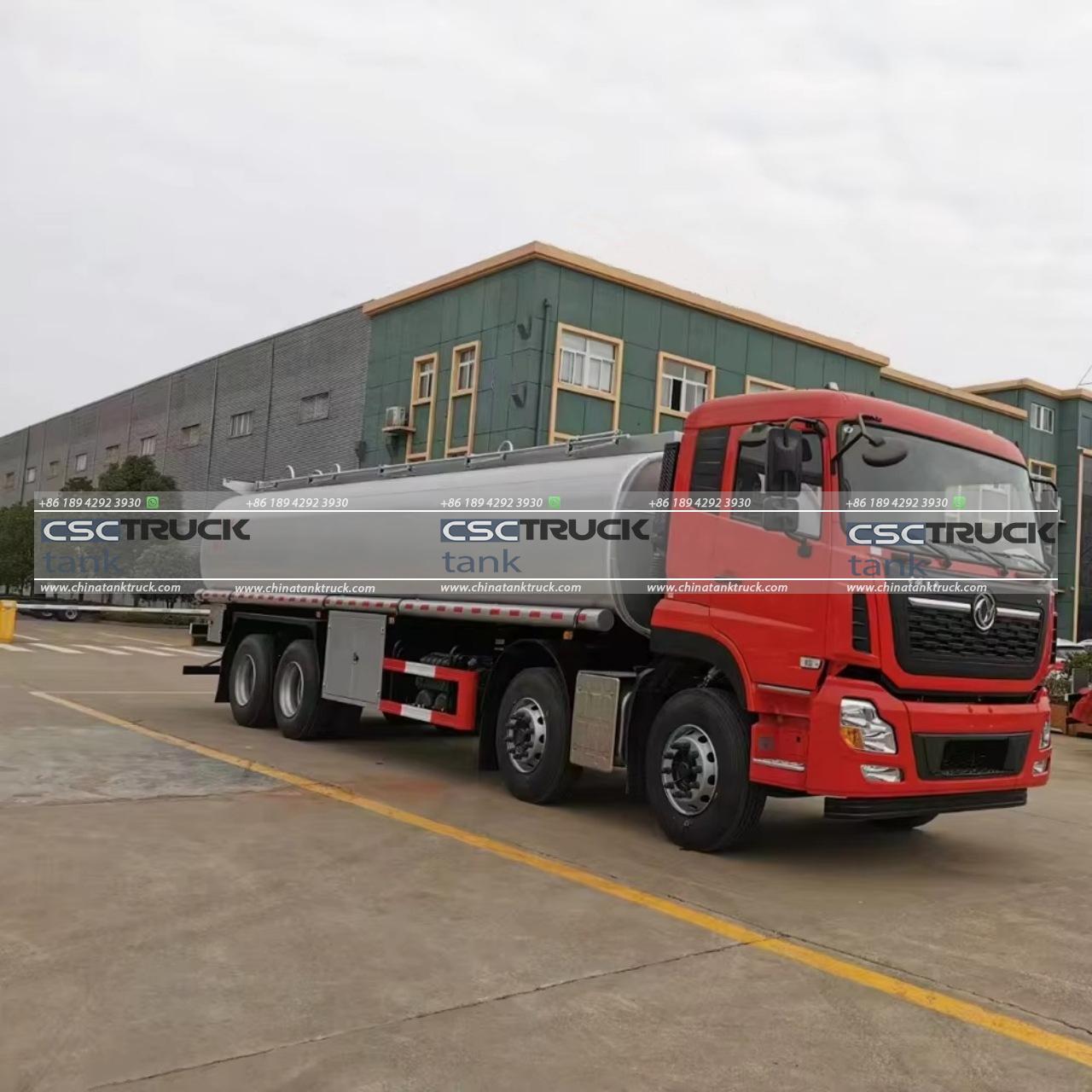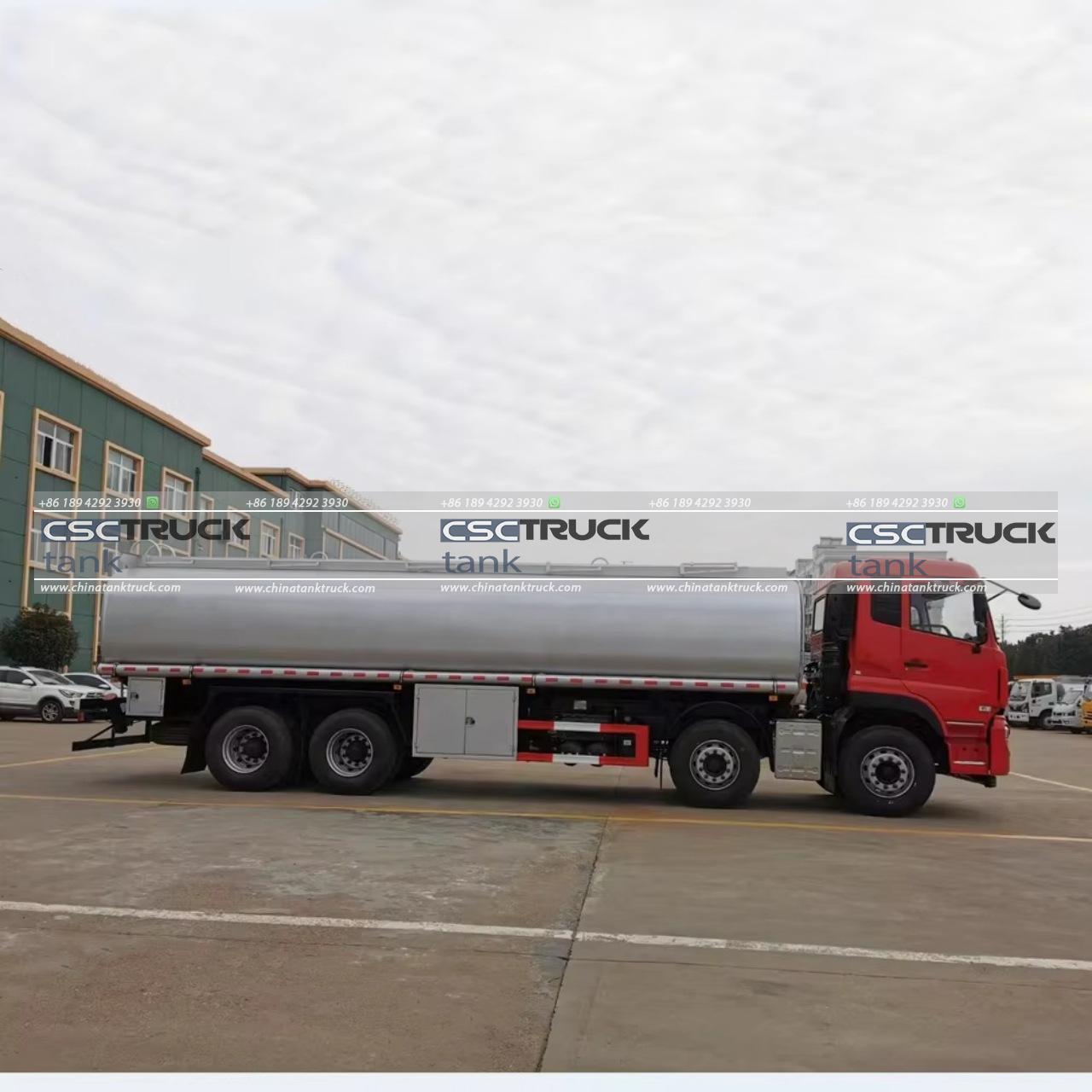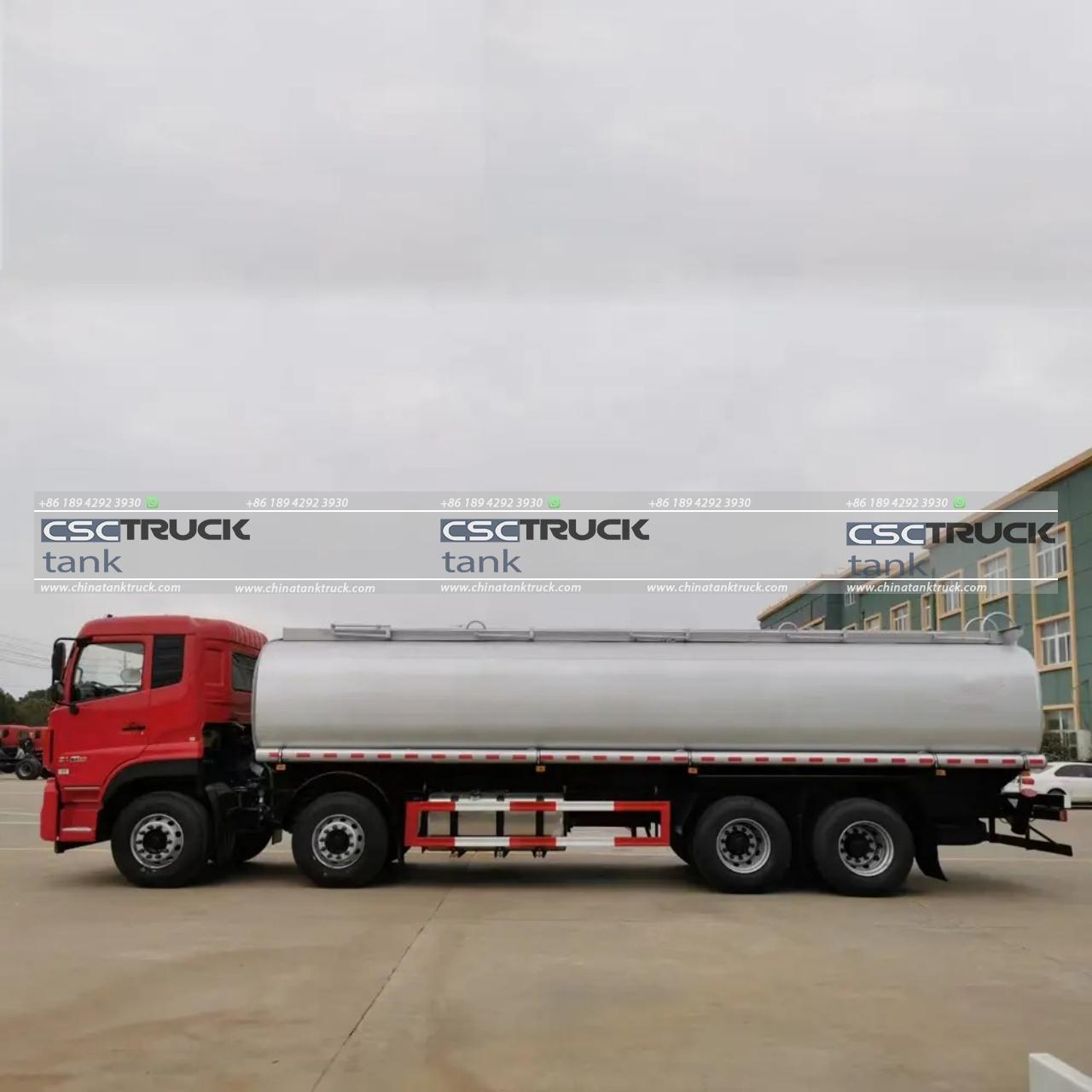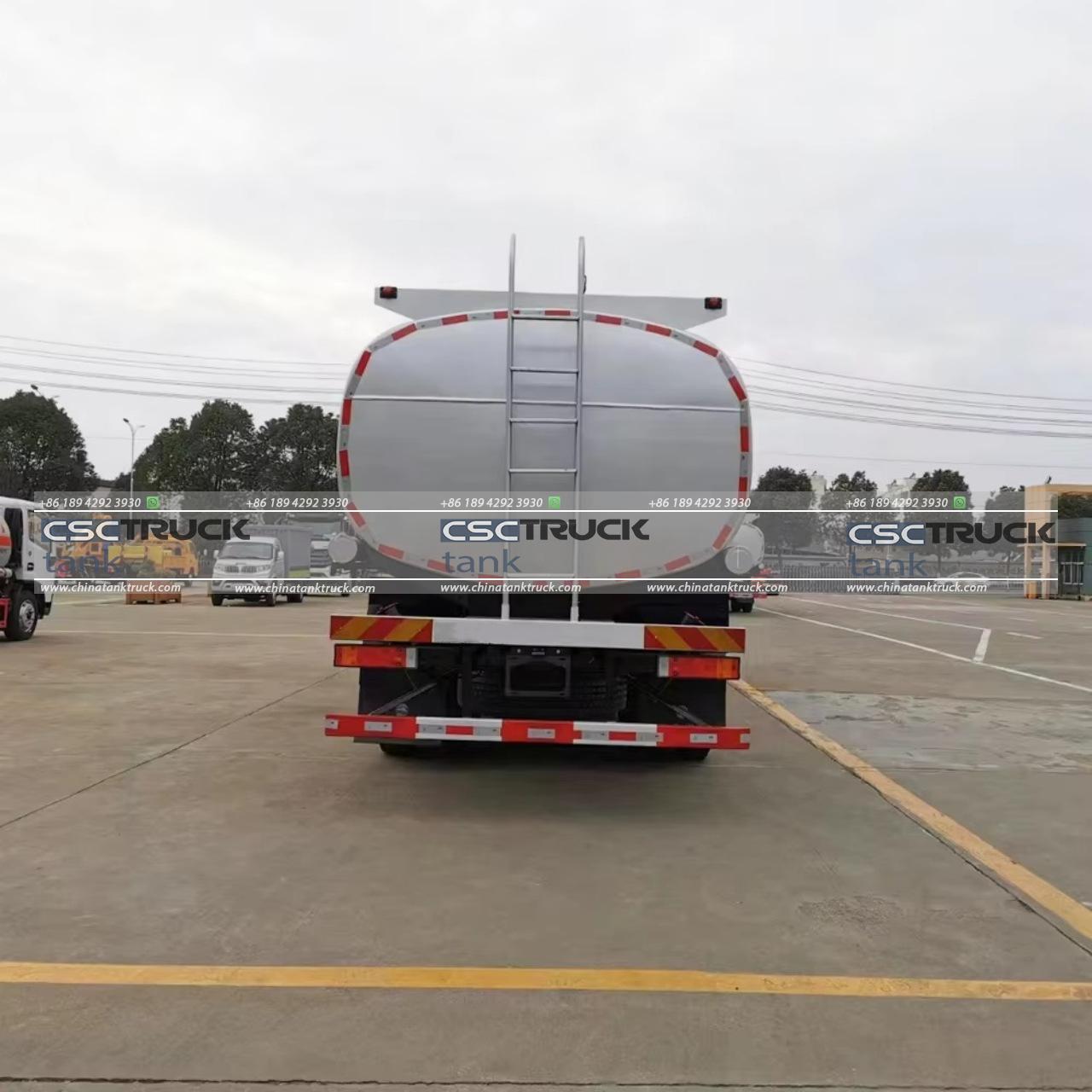What is a Tank Lorry?
A **tank lorry**, also known as a tank truck or tanker truck, is a specialized vehicle designed for transporting liquids, gases, and bulk materials. These trucks are essential in various industries, from fuel distribution to food and beverage transportation, chemical logistics, and even waste management. The design, construction, and operation of tank lorries are tailored to the specific needs of the materials they carry, making them versatile and crucial assets in the global supply chain.
1. Basic Structure and Design
At its core, a tank lorry is composed of a truck chassis and a cylindrical tank mounted on the back. The tank is usually made from materials like stainless steel, aluminum, or carbon steel, chosen based on the type of cargo. For instance, stainless steel tanks are common for food-grade products due to their corrosion resistance and ease of cleaning, while carbon steel tanks are often used for petroleum products.
The tank itself is typically cylindrical, which helps in evenly distributing the pressure exerted by the liquid inside and minimizes the risk of tipping over during transport. Inside the tank, there are often compartments separated by baffles. These compartments help in stabilizing the load by reducing the movement of the liquid, known as “sloshing,” which can affect the vehicle’s stability.

2. Types of Tank Lorries
Tank lorries come in various types, each designed to carry specific types of cargo. Some of the most common types include:
– Fuel Tankers: These are perhaps the most recognizable tank lorries, often seen delivering gasoline, diesel, or jet fuel to service stations and airports. They are designed to meet strict safety regulations, including explosion-proof features and grounding systems to prevent static electricity buildup.
– Chemical Tankers: Used for transporting hazardous chemicals, these tankers are built with materials resistant to chemical corrosion. They are equipped with special valves and safety features to prevent leaks and spills, ensuring the safe transport of dangerous substances.
– Food-Grade Tankers: These lorries are designed to transport edible liquids like milk, juice, and vegetable oils. They are constructed with food-safe materials and are often insulated to maintain the temperature of the cargo. Sanitation is a critical concern, so these tankers are easy to clean and often sterilized before loading.
– LPG and LNG Tankers: These are designed to carry liquefied petroleum gas (LPG) or liquefied natural gas (LNG). These gases are stored at high pressures and low temperatures, requiring specialized construction and safety systems to manage the risks associated with their transport.
– Bulk Powder Tankers: Used for transporting dry bulk materials like cement, flour, or plastic pellets, these lorries are equipped with pneumatic systems to unload the cargo. The tank is pressurized to blow the material out of the tanker, making unloading efficient and reducing the need for manual labor.
3. Safety Features and Regulations
Safety is paramount in the design and operation of tank lorries, given the potential hazards associated with transporting large quantities of liquids, gases, or bulk materials. Various safety features and regulatory standards are in place to minimize risks:
– Overfill Prevention: Tank lorries are equipped with overfill prevention devices to stop the filling process automatically when the tank reaches its maximum capacity. This reduces the risk of spills, which can lead to environmental contamination or fires.
– Pressure Relief Valves: These valves are crucial for tankers transporting gases or liquids under pressure. They automatically release pressure if it exceeds a certain threshold, preventing tank ruptures or explosions.
– Grounding and Bonding: To prevent static electricity buildup, especially in fuel tankers, grounding and bonding systems are used. These systems ensure that any static charge is safely dissipated to the ground, reducing the risk of sparks that could ignite flammable cargo.
– Double-Walled Construction: Some tankers, particularly those transporting hazardous chemicals or petroleum products, have double-walled tanks. This construction provides an extra layer of protection against leaks and punctures.
– Fire Suppression Systems: In the event of a fire, some tank lorries are equipped with fire suppression systems that can quickly extinguish flames, protecting both the cargo and the surrounding environment.
– Regulatory Compliance: Tank lorries must comply with various national and international regulations, such as the ADR (European Agreement Concerning the International Carriage of Dangerous Goods by Road) or the U.S. Department of Transportation (DOT) regulations. These regulations govern everything from the design and construction of the tanks to the training and certification of drivers.

4. Applications of Tank Lorries
Tank lorries are indispensable in a wide range of industries due to their versatility and efficiency in transporting different types of cargo. Some of the key applications include:
– Fuel Distribution: One of the most common uses of tank lorries is the transportation of fuels like gasoline, diesel, and jet fuel. They are a critical link in the supply chain, ensuring that fuel stations, airports, and industrial facilities remain operational.
– Chemical Transportation: Tank lorries are vital for the chemical industry, enabling the safe and efficient transport of a wide range of chemicals, from acids and bases to solvents and other hazardous materials. Their specialized design ensures that these materials reach their destination without incident.
– Food and Beverage Industry: In the food and beverage sector, tank lorries play a crucial role in transporting bulk liquids like milk, juice, and oils. These vehicles are designed to maintain the hygiene and quality of the cargo, ensuring that it remains safe for consumption.
– Waste Management: Tank lorries are also used in waste management, particularly for the transport of liquid waste or sludge. They are essential in ensuring that waste is safely transported to treatment facilities without contaminating the environment.
– Construction and Mining: In construction and mining, tank lorries are used to transport bulk materials like cement, water, and other liquids. They are often equipped with pumps and hoses to facilitate the delivery of these materials to specific locations on a job site.
5. Environmental Considerations
The operation of tank lorries, particularly those transporting hazardous materials, poses significant environmental risks. Spills, leaks, or accidents involving these vehicles can lead to severe environmental damage, including soil and water contamination and air pollution. To mitigate these risks, tank lorry operators must adhere to strict environmental regulations and best practices.
For instance, spill containment systems are often used to capture any leaks that might occur during loading or unloading. Additionally, regular maintenance and inspection of the tank and its components are essential to prevent accidents and ensure the safe transport of materials.

6. Technological Advancements
Recent technological advancements have significantly improved the safety, efficiency, and environmental impact of tank lorries. Some of these innovations include:
– Telematics and GPS Tracking: Modern tank lorries are often equipped with telematics systems that provide real-time data on the vehicle’s location, speed, and status. This allows operators to monitor the lorry’s performance and respond quickly to any issues that arise.
– Automated Loading and Unloading Systems: Automation is becoming increasingly common in the loading and unloading of tank lorries. These systems reduce the risk of human error, improve efficiency, and enhance safety by ensuring that the correct procedures are followed every time.
– Advanced Materials: The development of new materials, such as composite materials, has led to lighter and more durable tanks. These materials offer improved resistance to corrosion and wear, reducing maintenance costs and extending the lifespan of the tank.
7. Conclusion
In conclusion, tank lorries are a vital component of the global logistics network, enabling the safe and efficient transport of a wide range of liquids, gases, and bulk materials. Their specialized design and construction make them indispensable in industries such as fuel distribution, chemical logistics, food and beverage transportation, and waste management. As technology continues to advance, tank lorries will become even more efficient, safe, and environmentally friendly, ensuring their continued importance in the years to come.


